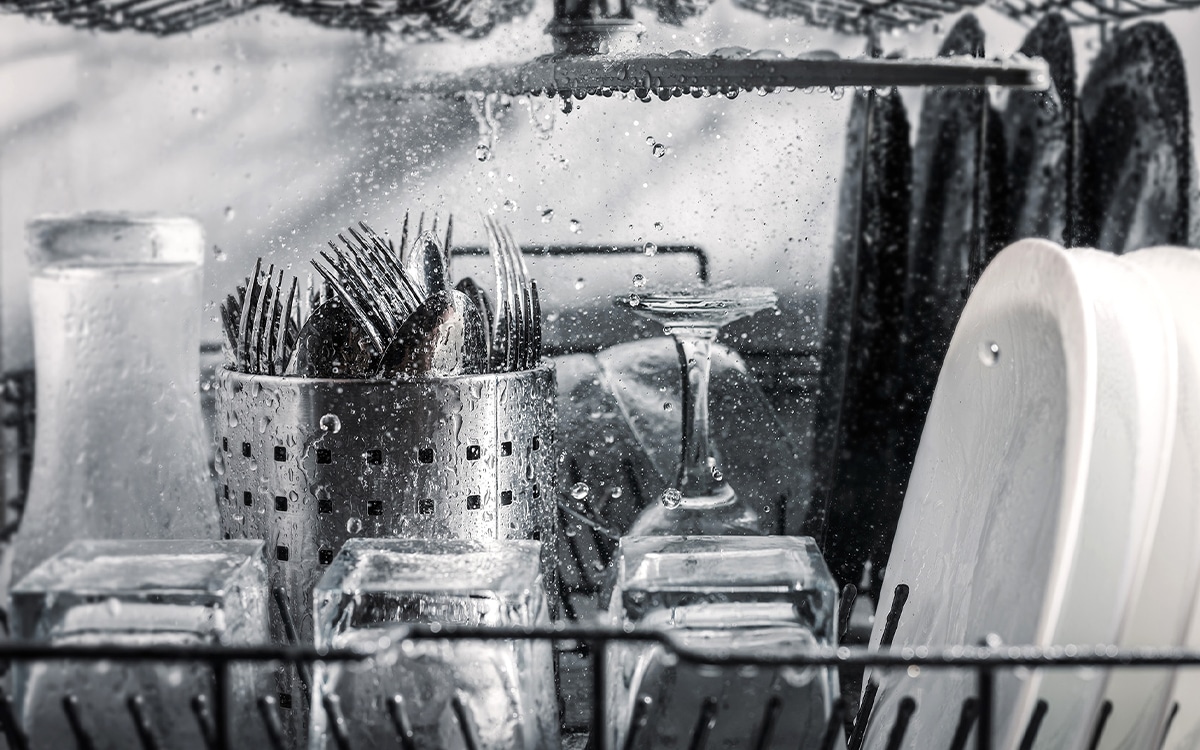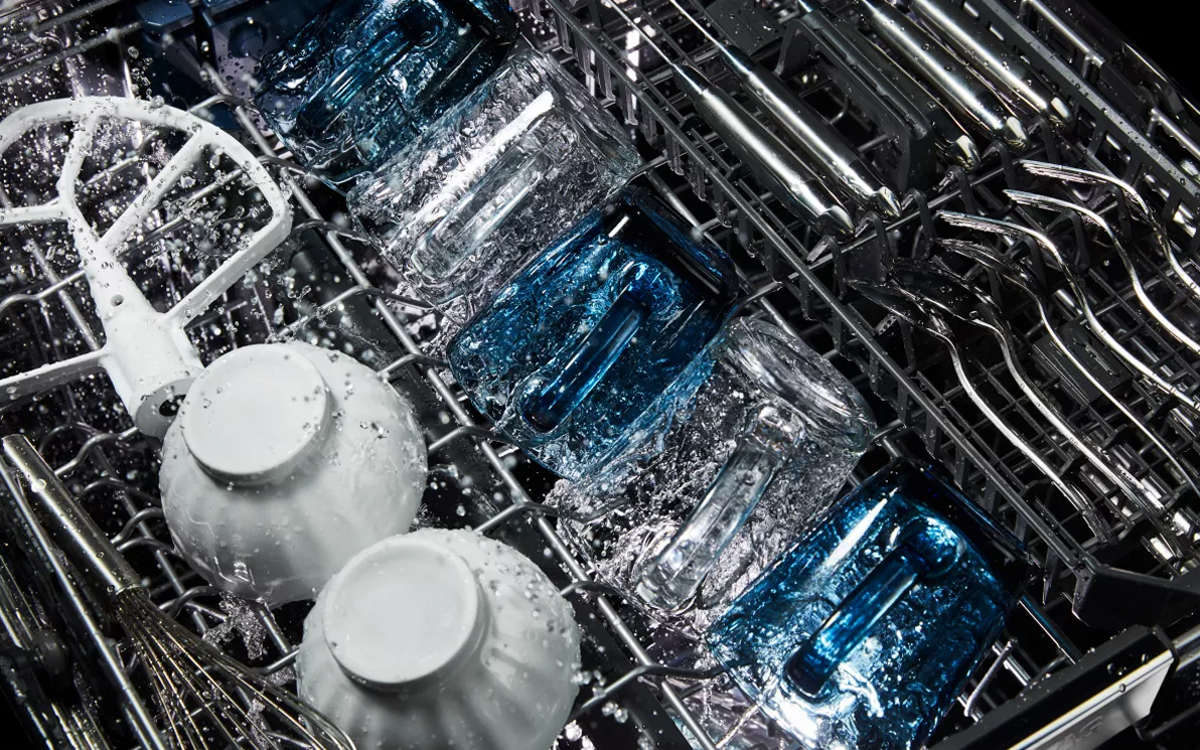But how much water does a dishwasher actually use? Do these appliances guzzle up water with reckless abandon? Or are they a little more conservative with every drop?
Been on the fence about buying a dishwasher for your home? Then you’ll want to give this article a read. Below, we’re going to dive deep to find the facts on dishwasher water usage, so you can find out whether a dishwasher might actually be a great asset in your kitchen!
Do Dishwashers Use Up A Lot Of Water?
It’s really easy to assume a dishwasher would use up a lot of water. After all, how could your dishes come out looking so shiny without plenty of water to wash them up? However, for the most part, dishwashers don’t actually use up that much water!
How much water your dishwasher uses will depend on how old your model is. Modern dishwashers are often required to cap their water consumption for greater efficiency. Nowadays, the average dishwasher will use around 9 litres of water for each load of dishes. When compared to older dishwasher models, this is significantly low!
Older dishwasher models often use more than 14 litres in every cycle, while even older dishwashers can use more than 20 litres! If you have an older dishwasher, we’d strongly recommend upgrading to a newer model with lower water consumption.
Dishwashers don’t use quite as much water as they once did. Modern dishwashers often use no more than 9.5 litres of water with every wash! Rinsing your dishes before placing them in the dishwasher consumes more water!
It’s also worth noting that, if you rinse your dishes before placing them into the dishwasher, you will see much higher water consumption. While rinsing dishes might have been necessary many years ago, when dishwashers weren’t quite as efficient, it isn’t anymore. Dishwashers are able to deal with large amounts of food while still providing a full clean.
Finally, water consumption will also depend on the size of your dishwasher. If you have a much larger dishwasher, you can expect it to use more water. A much smaller dishwasher, in turn, will use less water. If you live alone, or you only need to wash a small number of dishes, we recommend downsizing your dishwasher.
Can You Save Water By Washing Dishes By Hand?
Many people assume that you can save more money by washing your dishes by hand. While this might have been the case in the past, it isn’t anymore!
In order to wash your dishes by hand, you either fill up a washing bowl with warm water and soap or run the dishes under a hot tap. In order to wash a full dishwasher’s worth of dishes by hand, you would need to empty out and refill a washing bowl a number of times to ensure you’re always using clean water. Over time, this would result in a lot of water being used.
A dishwasher, on the other hand, is able to use far less water, and still clean everything perfectly. This is partly due to the fact that dishwashers make use of specialised detergents. These detergents help to pull dirt and grease away from the surface of your dishes.
Washing dishes by hand used to be the more economical option. Nowadays, dishwashers are far more efficient and able to make perfect use of less water. If you want to save water, then a dishwasher might be right!
If you really want to save water, and you frequently have to wash numerous dishes, you would actually save more with a dishwasher!

Do Dishwashers Use A Lot Of Electricity?
Dishwashers do make use of a lot of electricity to heat up water and spray it around the tub. However, Using a dishwasher could still save more energy than washing dishes by hand. In order to wash dishes by hand, you’ll need the water to be heated up first. When you need to constantly refresh the water in the washing bowl, you’ll need to use a lot of energy to get water that’s just right.
As well as this, many dishwashers are able to actively curb their electricity usage. Most modern dishwashers are equipped with some kind of “Eco-mode”. This helpful mode reduces electricity use by lowering the temperature of the water. In order to make use of the cooler water, the cycle will take much longer. However, it will help to save you massive amounts of money on your bills.
Frequently Asked Questions
Do Dishwashers Use A Lot Of Water?
Compared to older models, modern dishwashers don’t actually use that much water. An average dishwasher will use around 9.5 litres for a standard cycle. This is actually much less water than you would need to wash the same number of dishes by hand. As such, using a dishwasher can actually help you to save on water!
What Is The Most Economical Way To Wash Dishes?
The most economical way to wash dishes is to throw them into the dishwasher. A dishwasher actually uses less water than washing your dishes by hand in the sink. If you don’t have a dishwasher, then it is more economical to soak your dishes in a washing bowl, rather than to wash them under running water. The bowl will help you to make use of every drop.
Is It Cheaper To Wash Dishes At Night?
You can save more money by washing your dishes at night instead of during the day. At night, far fewer electrical devices are being used, as most people are asleep. During this time, there is less of a demand put on the electrical grid. As such, the electricity will cost far less.





